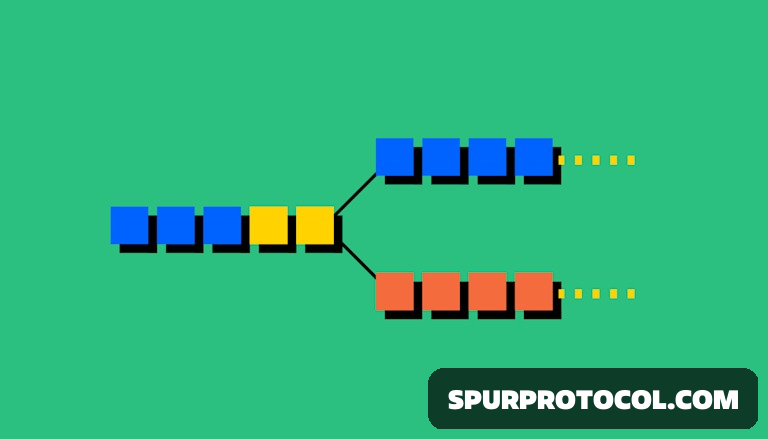Understanding Blockchain Fork In Cryptocurrency
On this post you will learn how Blockchain fork works
Go Back

🕒 2:14 PM
📅 May 10, 2025
✍️ By dochain
Digital currencies such as Bitcoin and Ethereum operate on decentralized, open software known as a blockchain, to which anyone can contribute. They are referred to as blockchains because they consist of interconnected blocks of data – imagine an extensive train – that can be followed back to the network's very first transaction. Since they are open-source, these blockchains depend on their communities to sustain and enhance their foundational code.
A fork occurs when a community alters the blockchain's protocol or fundamental rules. As a result, the chain divides, creating a new blockchain that retains all of its history with the original but is now advancing in a different direction.
Why does this matter?
The majority of digital currencies have separate development teams tasked with implementing modifications and enhancements to the network, similar to how updates to internet protocols improve web browsing over time. Consequently, forks can occur to enhance a cryptocurrency's security or introduce new features.
However, developers of a new cryptocurrency can also leverage a fork to establish entirely new coins and ecosystems.
Types Of Fork
Soft fork: You can think of a soft fork as an upgrade to the blockchain's software. Provided that all users adopt it, it establishes a new standard for the currency. Soft forks have been utilized to introduce new features or functions, usually at the programming level, to both Bitcoin and Ethereum. Since the end result is a unified blockchain, the modifications remain backward-compatible with the blocks that were created prior to the fork.
Hard fork: A hard fork occurs when the alterations to the code are substantial enough that the new version is incompatible with previous blocks. In this case, the blockchain divides into two: the original blockchain and the new version that adheres to the updated rules. This process results in the creation of a completely new cryptocurrency, which is the origin of many well-known coins. Cryptocurrencies such as Bitcoin Cash and Bitcoin Gold emerged from the original Bitcoin blockchain through hard forks.

